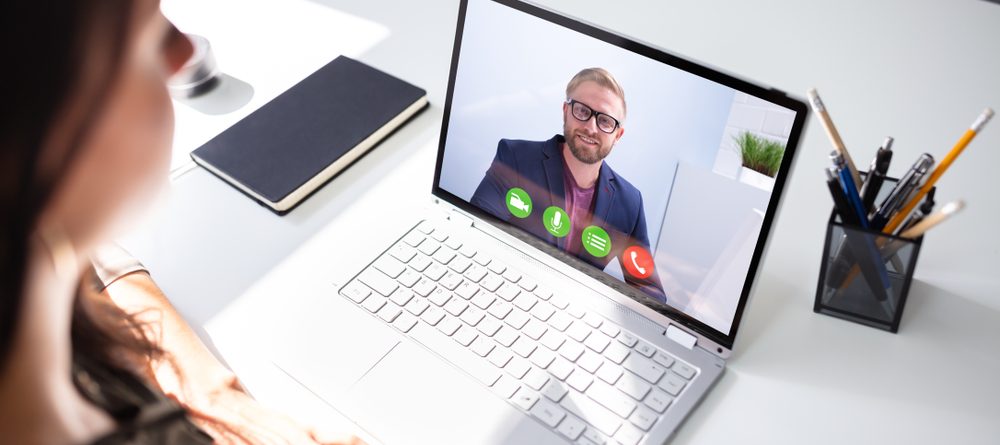Video interviews have been popular with recruiters, but ever more so at the moment, with COVID-19 affecting the way businesses are able to recruit. Video interviews are often used in the early stages of a recruitment process to filter out large numbers of candidates, however they can also be used for cost and time saving reasons, or indeed to allow organsations to continue recruiting whilst adhering to social distancing regulations! As such, it’s essential that you know what to expect from a video interview and understand how to best prepare.
Top tips for preparing for video interviews
1) Research the format – video interviews can be undertaken live (similar to a face-to-face interview, conducted using technology such as Zoom or Skype), or pre-recorded, requiring you to read the questions on screen and then record your answer within a given timeframe. This latter format allows the recruiter to watch the interview back at a suitable time for them, however this is obviously a less personal experience for you as an interviewee. It’s important you find out in advance what format the interview will take to help with your expectations and preparation.
2) Prepare as you would for a normal interview – regardless of format, you will still need to prepare for a video interview just as you would for a face-to-face. This means researching the organisation, being clear on your motivations for the role and sector, preparing to answer common interview questions and considering questions you may want to ask the recruiter. Just like a face-to-face interview, your aim is still to impress the employer and demonstrate that you’re an ideal candidate! Included in this preparation is a consideration for your outfit – as you will be on camera you should dress appropriately, just as formal as you would if you were attending the interview in person.
3) Select an appropriate location – ideally you want to choose a quiet area with a neutral background. You will also want to check the lighting to make sure there’s no glare and that you can be seen clearly on camera. On the day, don’t sit too close to the screen and adjust your seating so that you are looking straight into the camera to ensure optimal eye contact.
4) Test your technology – prior to the interview (perhaps a day or two, not just before!), test your computer, camera and any technology/software you’ve been asked to use. You may find it useful to have a video call with a friend to make sure your picture and sound is clear and familiarise yourself with the software.
5) Use positive body language – it’s all the more important to try and convey your motivation and enthusiasm over video. Maintain good body posture (don’t slouch!), smile often, and try to look at the camera to make eye contact throughout the video. This may be harder with a pre-recorded video, so try to imagine that you are talking to a real person when answering the questions.
6) Practice – ideally you will want to practice your video skills, especially if you’re not used to chatting over video as more use will increase your confidence. Set up a mock interview with a friend (or ideally a career advisor or coach!) and practice answering a few common interview questions. Ask for feedback, or alternatively record your screen so you can review your performance and identify any nervous habits (for example speaking too fast) or areas for improvement (such as your posture or eye contact).
7) A note about notes – you may choose to write a few notes to and have these on the desk in front of you or stuck to the sides of your screen to use as prompts. If you do use notes, include snippets, key facts or just one-word reminders (e.g. ‘Smile!’) to make sure you don’t get distracted or just sound like you’re reading. You don’t want to lose the genuine enthusiasm that comes with a normal conversation, as this is key to developing a connection with the interviewer.
8) Be prepared – on the day, get set up in plenty of time to ensure you internet access and video software is all working fine. You also want to check that your computer or laptop is plugged in or fully charged. Try to minimise any interruptions during the interview – perhaps put up a sign on your door so others know not to enter, and make sure you’re phone is turned off. If there’s a chance you might be interrupted by something out of your control (for example the neighbour’s dog barking) then mention this at the start of the interview to prevent you from worrying about it.
Ultimately, your goal during the interview is to demonstrate your enthusiasm and suitability for the position to the employer. Taking note of these tips should provide you with the information needed to prepare effectively, and the confidence required to ace your video interview. Good luck!





